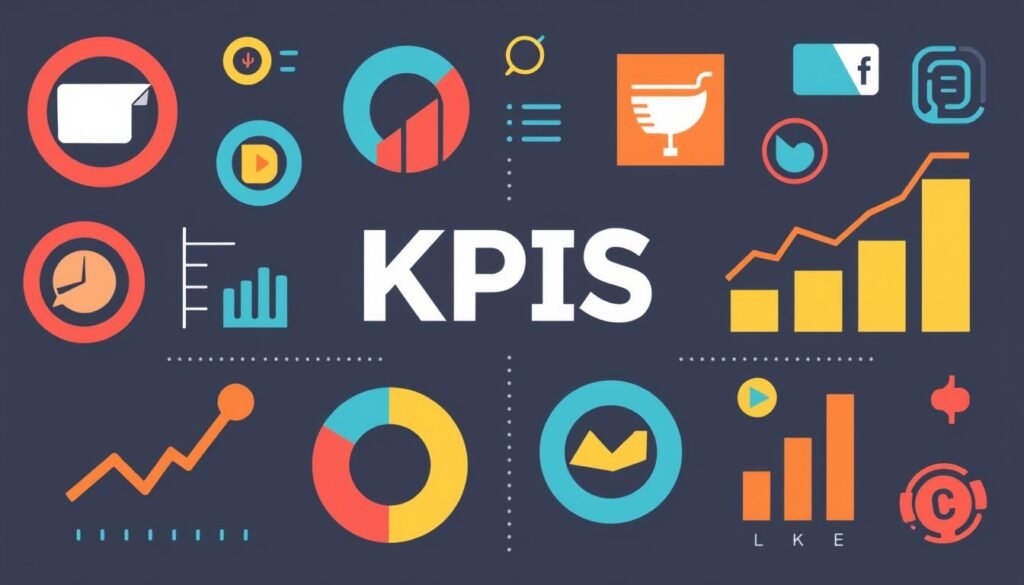Physical Address
304 North Cardinal St.
Dorchester Center, MA 02124
Physical Address
304 North Cardinal St.
Dorchester Center, MA 02124

Are you wondering how to elevate your brand’s online presence in a crowded digital landscape? Choosing the right partner is crucial.
In 2024, selecting a social media management agency that aligns with your business goals is more important than ever. As the digital marketing ecosystem continues to evolve, a professional agency can help you navigate the complexities of content creation and marketing strategy.
I will guide you through the process of evaluating agencies based on their expertise, services offered, and proven results. By the end of this guide, you’ll be equipped to make an informed decision when partnering with a marketing services agency that drives meaningful engagement and business growth.
Still Unsure? Get a Custom Agency Match.
(Body Text)
We know choosing is the hardest part. Tell us your business goals, budget, and needs, and we’ll provide a shortlist of vetted agencies that are the perfect fit for you—for free.
As we navigate 2024, the landscape of social media management continues to evolve at a rapid pace. The increasing complexity of social media algorithms and platform features has made professional management essential for businesses seeking meaningful results.

The pace of change in social media requires dedicated specialists who stay current with platform updates, trend cycles, and best practices. Businesses without expert management often struggle with sporadic posting, inconsistent messaging, and reactive rather than strategic approaches.
Several key trends are impacting businesses in 2024. These include:
Professional social media management provides the consistency and frequency needed to maintain visibility in crowded feeds and timelines. The technical aspects of social media management, from analytics interpretation to ad campaign optimization, require specialized knowledge that most business owners don’t have time to develop.
By leveraging professional management, businesses can benefit from cross-industry insights and competitive intelligence that inform more effective content strategies, ultimately driving better results.

In today’s digital landscape, a social media manager agency plays a crucial role in shaping a brand’s online identity. As social media continues to evolve, businesses are turning to these agencies for expert guidance on managing their online presence.
Social media management agencies provide a range of services, including content creation, social media marketing, and media management. These services are designed to help businesses improve their online presence and engage with their target audience.
Some of the key services offered by social media management agencies include:
Social media management agencies differ from freelancers and in-house teams in several key ways. Agencies offer scalability and diversity in their teams, allowing them to handle complex social media campaigns and provide a broad range of expertise.
Some of the advantages of working with a social media management agency include:
With the ever-evolving world of social media, it’s essential to recognize when your business needs the help of a professional agency. For many businesses, managing social media effectively requires significant resources and expertise.

If your social media presence is inconsistent or failing to engage your target audience, it may be a sign that you need professional help. Consistency is key to maintaining a strong online presence, and an agency can help you achieve this.
Managing social media requires a significant amount of time and expertise. If you find that you’re struggling to keep up with the demands of social media management, consider hiring an agency. They can provide the necessary expertise to develop and implement a successful social media strategy.
If your current social media efforts are not yielding the desired results, it’s time to reassess your strategy. An agency can help you identify areas for improvement and develop a more effective approach to social media marketing. This might involve refining your target audience, adjusting your content, or leveraging paid social media advertising.
Some common signs that indicate a need for a social media manager agency include plateaued or declining follower growth, low engagement rates, and a failure to drive website traffic or sales. By recognizing these signs and taking action, you can improve your social media presence and achieve your marketing goals.
The benefits of hiring a social media manager agency are multifaceted and can significantly impact a business’s bottom line. By outsourcing social media management to experts, companies can enhance their online presence, improve engagement, and drive sales.

Social media manager agencies bring specialized expertise and cutting-edge tools to the table, allowing businesses to stay ahead of the curve. These professionals are well-versed in the latest social media trends and have access to advanced analytics tools, enabling them to craft effective social media strategies.
By outsourcing social media management, businesses can save significant time and resources. Agencies handle everything from content creation to campaign execution, freeing up internal teams to focus on core business functions. This marketing efficiency can lead to improved productivity and reduced operational costs.
Consistency is key in social media, and agencies excel at maintaining a regular posting schedule. This ensures that followers remain engaged and that the brand stays top-of-mind. Agencies also develop a content strategy that aligns with the business’s overall marketing goals.
One of the most significant benefits of hiring a social media manager agency is their ability to leverage data to drive social media strategy. By monitoring key metrics such as engagement rates, impressions, and click-through rates, agencies can refine their approach to maximize results and improve campaign performance over time.
Key aspects of data-driven strategy include:
– Establishing clear KPIs aligned with business objectives
– Regular reporting and analysis to identify areas for improvement
– A/B testing to optimize content and posting strategies
– Competitive analysis to benchmark performance and identify opportunities
– Using data-driven insights to inform broader marketing decisions
As social media continues to evolve, understanding the different types of social media management services is crucial for businesses aiming to establish a strong online presence. At the heart of effective social media management is a comprehensive approach that combines various strategies to achieve marketing goals.

Organic social media management focuses on creating and curating content that resonates with the target audience without paid promotion. This approach helps build brand awareness, foster engagement, and drive website traffic through high-quality content and strategic posting schedules. By leveraging organic social media, businesses can establish a loyal community and improve their overall online presence.
Paid social media advertising involves using paid promotions to reach a wider audience and drive conversions. This service allows businesses to target specific demographics, interests, and behaviors, ensuring that their message reaches the most relevant audience. By combining organic and paid strategies, companies can maximize their social media marketing efforts and achieve a higher return on investment.
Content creation and curation are essential components of social media management. This involves developing a content strategy that includes a mix of original content, curated posts, and user-generated content. By creating engaging and relevant content, businesses can attract and retain their target audience, driving engagement and brand loyalty.
Community management involves monitoring and responding to comments, messages, and mentions across social media platforms. Effective community management helps humanize brands through authentic conversations and personalized interactions. Key aspects include:
By understanding and leveraging these different types of social media management services, businesses can develop a comprehensive marketing strategy that drives results and fosters long-term growth.
| Service | Description | Benefits |
|---|---|---|
| Organic Social Media Management | Creating and curating content without paid promotion | Builds brand awareness, fosters engagement |
| Paid Social Media Advertising | Using paid promotions to reach a wider audience | Targets specific demographics, drives conversions |
| Content Creation and Curation | Developing a content strategy | Attracts and retains target audience, drives engagement |
| Community Management and Engagement | Monitoring and responding to interactions | Humanizes brands, builds relationships |
Different social media platforms demand unique management strategies to achieve business goals. Effective management involves understanding the distinct characteristics and user behaviors of each platform to maximize online presence and engagement.
See How We Measure Up.

Managing Facebook and Instagram requires a focus on visual content and engagement-driven strategies. These platforms are ideal for businesses looking to build brand awareness and interact with customers directly. By leveraging features like Facebook Groups and Instagram Stories, businesses can foster a loyal community and drive sales.
For professional services and B2B marketing, LinkedIn and Twitter are indispensable. LinkedIn management involves sharing thought leadership content and participating in industry discussions, while Twitter requires real-time engagement and concise messaging. Both platforms help businesses establish authority and stay connected with industry trends.
TikTok and YouTube are crucial for reaching younger audiences and creating engaging video content. TikTok management focuses on short-form, viral videos, while YouTube involves longer-form content and SEO optimization. Both platforms offer significant opportunities for brand storytelling and product showcases.
Pinterest management is particularly valuable for businesses in visual industries, focusing on SEO principles and evergreen content. Emerging platforms like TikTok, Clubhouse, and BeReal require experimental approaches and early adoption strategies. By understanding the unique culture and user behaviors of these platforms, businesses can position themselves as innovative and reach new demographics.
By adopting platform-specific social media management strategies, businesses can enhance their online presence, improve engagement, and drive sales. It’s essential to stay adaptable and continually assess the performance of each platform to optimize overall social media marketing efforts.
To ensure a fruitful collaboration, it’s essential to identify the key characteristics of a reliable social media manager agency. When evaluating potential agency partners, several critical factors come into play, directly impacting the success of your social media marketing efforts.
First and foremost, consider the agency’s industry experience and specialization. An agency with a proven track record in your industry is better equipped to understand your unique challenges and opportunities. Look for case studies or testimonials that demonstrate their expertise in social media management.
The quality of content created by the agency is another crucial factor. Assess their creative capabilities by reviewing their portfolio. High-quality, engaging content is essential for capturing your audience’s attention and driving business results. Ensure their content style aligns with your brand’s voice and aesthetic.
Effective communication is vital for a successful partnership. Investigate the agency’s reporting processes. They should provide regular, comprehensive reports that tie social media performance to your business objectives. Transparency in reporting, including both successes and challenges, is key. Consider the following aspects:


Before partnering with a social media management agency, there are several key questions you should ask to ensure you’re making an informed decision.
It’s essential to understand how a social media manager agency develops its strategies. Ask about their approach to creating customized plans based on your business objectives. Inquire about their process for conducting competitor research and analyzing industry trends.
Understanding the team structure and expertise of the agency is vital. Ask about the roles and responsibilities of team members and their level of experience in social media marketing. Inquire about their content creation capabilities and how they stay up-to-date with the latest social media trends.
To gauge the effectiveness of a social media manager agency, ask about their measurement and performance reporting practices. Some key questions to ask include:
Understanding the various pricing models used by social media management agencies is crucial for making informed decisions about your social media marketing strategy.
When evaluating social media management services, businesses are often faced with different pricing structures that can be confusing.
Agencies typically offer either monthly retainer or project-based pricing models. A monthly retainer involves a recurring fee for ongoing social media management services, while project-based pricing is used for one-time or specific projects.
The choice between these models depends on your business needs and the scope of the marketing services required.
Our social media management offering includes: Strategy Creation, which involves developing a comprehensive plan with clear goals and metrics; Inbound Engagement Monitoring, which ensures timely responses to comments and interactions; and Analytics Monitoring, which tracks progress against defined metrics.

When evaluating pricing, be cautious of agencies that:
Being aware of these red flags can help you make a more informed decision when selecting a social media management agency.

Assessing a social media manager agency’s portfolio helps you gauge their potential to deliver successful social media campaigns. A comprehensive portfolio showcases an agency’s experience, creativity, and ability to drive results for their clients.
When evaluating a social media agency’s portfolio, look for detailed case studies that demonstrate their strategy and execution. These studies should highlight the challenges faced, the solutions implemented, and the outcomes achieved. Pay attention to metrics such as engagement rates, follower growth, and conversions to understand the agency’s impact. For instance, a case study might show how an agency increased a client’s Instagram engagement by 50% through targeted content and community management.
Key aspects to focus on include the agency’s approach to content creation, their use of paid social media advertising, and their ability to adapt strategies based on performance data.
Client testimonials and reviews provide valuable insights into an agency’s work ethic and client satisfaction. I advise looking beyond the curated testimonials on agency websites to check independent review platforms, social media comments, and industry forums. Reach out directly to current or former clients when possible to get candid feedback about their experience working with the agency. Pay attention to specific aspects mentioned in reviews, such as communication quality, adherence to deadlines, and responsiveness to feedback.
Additionally, consider how the agency responds to negative reviews, as this reveals their approach to problem-solving and client service. Industry awards and recognition can also provide additional validation of an agency’s expertise and reputation.
Effective onboarding sets the stage for a successful partnership with your social media manager agency. This process is crucial for aligning expectations, defining roles, and establishing a clear roadmap for your social media strategy.
During the first 30 days of onboarding, you can expect several key activities to take place. The agency will typically start by conducting a thorough audit of your current social media presence, including an analysis of your existing content, engagement metrics, and competitor landscape.
Setting clear goals and expectations is vital for ensuring that both your team and the social media manager agency are working towards the same objectives. This involves establishing communication protocols, including regular meeting schedules and reporting cadence.
| Timeline | Expected Outcomes |
|---|---|
| 30 Days | Initial strategy development and content calendar setup |
| 90 Days | Noticeable improvements in engagement and content quality |
| Six Months | Measurable impact on lead generation and sales |
By setting clear expectations and maintaining open lines of communication, you can ensure a successful partnership with your social media manager agency and achieve your marketing goals.

To gauge the effectiveness of your social media efforts, it’s crucial to track the right Key Performance Indicators (KPIs). As a business owner, understanding these metrics is essential for optimizing your online presence and achieving your marketing goals.
Engagement metrics, such as likes, shares, and comments, are vital indicators of how your audience interacts with your content. Monitoring these metrics helps you understand what resonates with your audience and adjust your content strategy accordingly.
Beyond engagement, it’s essential to track conversion metrics that directly impact your business. This includes click-through rates, lead generation, and sales attributed to your social media campaigns. By analyzing these metrics, you can assess the ROI of your social media management efforts.
Regular review of your social media performance is crucial. I recommend weekly monitoring of basic metrics, monthly comprehensive reviews, and quarterly strategic assessments. Additionally, campaign-specific analysis and reviews following platform algorithm changes or significant industry developments are necessary to stay on track.
To maximize the benefits of working with a social media manager agency, it’s crucial to avoid common mistakes that can impede progress. Effective collaboration requires a clear understanding of the potential pitfalls and how to navigate them.
Clear communication is the backbone of any successful partnership with a social media manager agency. Failing to articulate your goals, expectations, and brand voice can lead to misaligned strategies and disappointing results. Regular updates and open channels of communication ensure that both parties are on the same page.
Setting unrealistic expectations can lead to disappointment and frustration. Understanding that social media management is a long-term strategy, not a quick fix, is crucial. Agencies need time to develop and implement effective strategies that yield tangible results.
Withholding critical brand information can severely limit an agency’s ability to create authentic and engaging content. This includes detailed brand guidelines, customer insights, product information, and visual assets. Sharing this information enables agencies to develop a deeper understanding of your brand and target audience, leading to more effective social media management.

If your social media presence isn’t meeting expectations, it might be time to reevaluate your management agency. Your social media strategy is crucial to your overall marketing efforts, and a mismatch can impact your business significantly.
Several indicators suggest it’s time to change your social media management agency. These include a lack of engagement, poor content quality, and failure to adapt to changing social media trends. If you notice these signs, it’s essential to assess whether your agency is equipped to handle your social media management needs.
Transitioning to a new agency requires careful planning. I recommend reviewing your contract terms regarding notice periods and transition requirements before initiating any change. It’s also crucial to secure ownership and access to all content, assets, and accounts before ending the relationship with your current agency.
By understanding the warning signs of poor performance and knowing how to transition smoothly, you can ensure that your social media management is in capable hands, aligning with your overall business strategy and goals.
As we look ahead to the future of social media management, it’s clear that the landscape is rapidly evolving. The way businesses interact with their audiences on social media is changing, driven by technological advancements, shifting consumer behaviors, and the ever-changing algorithms of social media platforms.
Artificial intelligence (AI) and automation are transforming social media management by enabling more efficient content creation, personalized customer interactions, and data-driven decision-making. AI-powered tools can analyze vast amounts of data to predict audience engagement, optimize content, and even generate content automatically. This not only saves time but also enhances the effectiveness of social media strategies.
The social media landscape is constantly expanding with new platforms and content formats emerging regularly. Businesses need to stay agile and adapt to these changes to remain relevant. For instance, the rise of short-form video content and live streaming has opened new avenues for engaging with audiences. Keeping an eye on emerging trends and being willing to experiment with new formats is crucial for maintaining a competitive edge in social media marketing.
Social media management is becoming increasingly integrated with overall digital marketing strategies. This includes aligning social media efforts with website optimization, email marketing, and search engine optimization (SEO) to create a cohesive brand presence across all digital touchpoints. By integrating social media with other marketing channels, businesses can enhance their online visibility, drive more leads, and improve conversion rates.
The right social media manager agency can be a game-changer for your business, driving growth and enhancing your online presence. As we’ve explored throughout this guide, selecting an agency that aligns with your business objectives is crucial for success in the ever-evolving landscape of social media.
When choosing an agency, it’s essential to consider more than just their content creation capabilities. You need a partner that offers strategic alignment, cultural fit, and a shared vision for your brand’s growth. Take the time to thoroughly evaluate potential agencies based on their experience, creative capabilities, communication style, and proven results for businesses similar to yours.
To set your agency relationship up for success, be prepared to provide clear information about your brand, audience, and objectives. Establishing meaningful metrics for success that tie social media efforts to business outcomes is also crucial, rather than focusing solely on vanity metrics. With the right agency partner, social media can become a powerful driver of brand awareness, audience engagement, lead generation, and business growth.
I encourage you to use this guide as a framework for making an informed decision that positions your business for social media success in 2024 and beyond. By choosing an agency that demonstrates adaptability and forward thinking, you’ll be well-equipped to navigate the rapidly evolving social media landscape.
